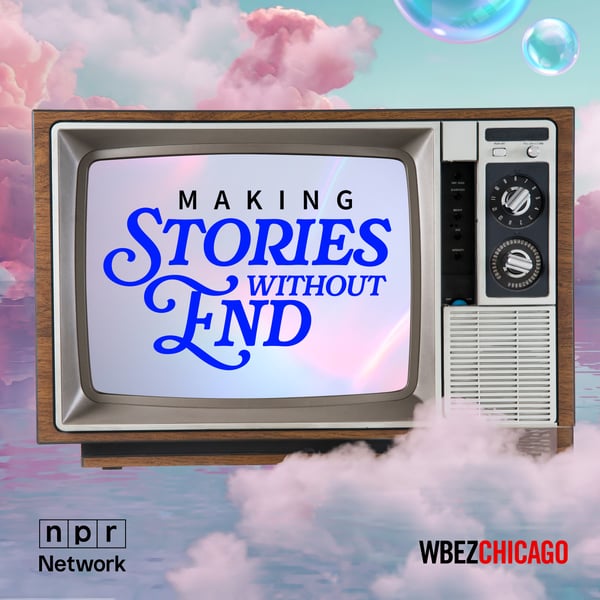TV wouldn’t be TV without soap operas
Making
WBEZ Chicago
4.6 • 3.7K Ratings
🗓️ 6 May 2025
⏱️ 30 minutes
🧾️ Download transcript
Summary
Transcript
Click on a timestamp to play from that location
| 0:00.0 | From WBEZ Chicago, I'm Natalie Moore, |
| 0:05.0 | and this is Making Stories Without End. |
| 0:09.0 | Here, I take you on a journey to learn about daytime soap operas |
| 0:14.0 | and their broad reach on television. |
| 0:17.0 | Many people don't know that the serial started right here in Chicago. Join me as we talk about the social impact, history, and lasting legacy of television's unique immersive storytelling. |
| 0:33.6 | Network television would not exist if not for the financial profit of soap operas. |
| 0:43.8 | My love of soaps is not rendering me hyperbolic. |
| 0:48.2 | Soaps brought in most of the money from the 1960s through the 1980s. |
| 0:52.9 | The revenue allowed experimentation |
| 0:55.0 | for some of the most lauded primetime sitcoms, |
| 0:58.0 | ones we still talk about today. |
| 1:00.0 | The decline of soaps isn't attributable to a singular event. |
| 1:05.0 | Media fragmentation and evolving viewer habits tell that story. |
| 1:09.0 | In this episode, we talk about the apex and the decline of soaps, |
| 1:14.2 | but also their enduring legacy today, |
| 1:17.4 | that emotional pool that non-fans are oblivious to |
| 1:20.9 | because they think soaps are only campy, |
| 1:23.5 | and they use that term, campy, to be dismissive. |
| 1:26.7 | But they're wrong, because camp isn't bad. |
| 1:30.3 | Soap's perfected storylines like Riva Shane confronting her clone on Guiding Light. |
| 1:35.3 | You can't be here now. |
| 1:38.3 | Sorry to disappoint you, but I am. |
... |
Please login to see the full transcript.
Disclaimer: The podcast and artwork embedded on this page are from WBEZ Chicago, and are the property of its owner and not affiliated with or endorsed by Tapesearch.
Generated transcripts are the property of WBEZ Chicago and are distributed freely under the Fair Use doctrine. Transcripts generated by Tapesearch are not guaranteed to be accurate.
Copyright © Tapesearch 2025.

